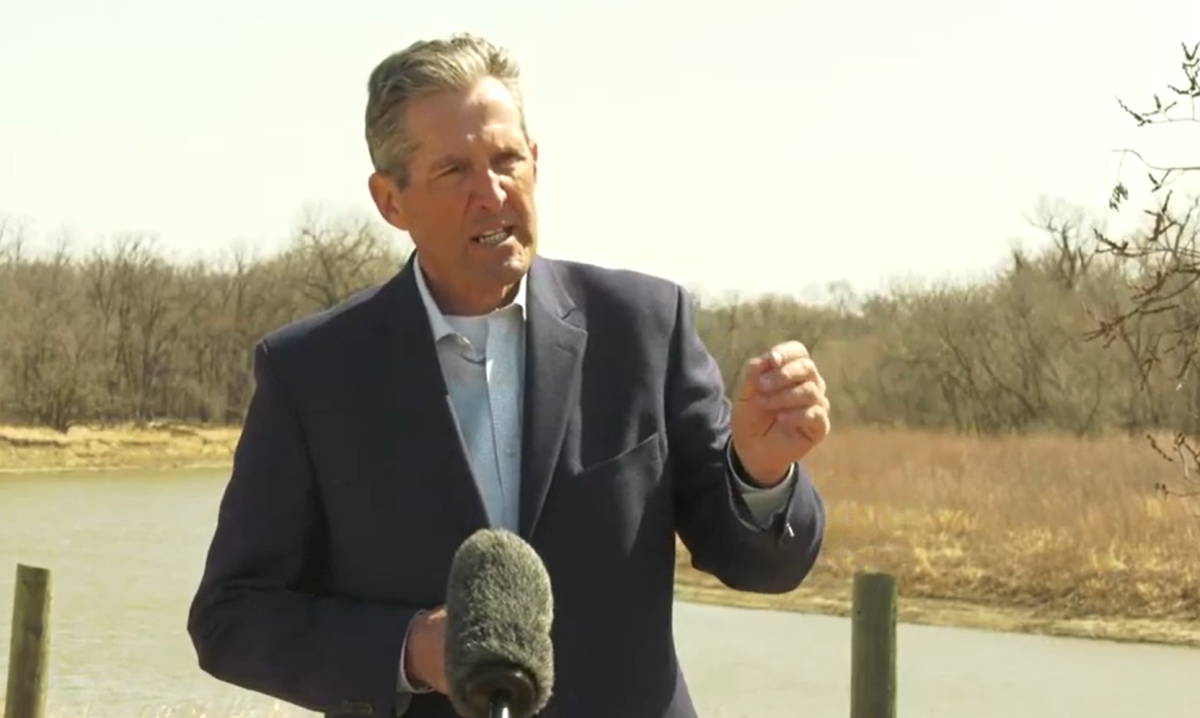Brian Pallister’s comments on reconciliation continue to resonate negatively with Manitobans, which could spell an ongoing lack of support for his party and a further drop in personal popularity, according to a politics professor at Brandon University.

Kelly Saunders, an associate professor in the university’s political science department, told 680 CJOB the premier’s personality seems to be getting in the way of his ability to respond to Manitobans’ concerns with compassion.
Pallister’s latest misstep, she said, was announcing last week that the statues of two Queens — which were toppled in a Canada Day protest over the deaths of Indigenous children at residential schools — would be restored at the Manitoba Legislature.
“I was dismayed and disappointed, but I wasn’t surprised,” said Saunders. “We’ve seen the premier make a number of gaffes on a number of issues ever since he became the leader of this province. He doesn’t seem to learn from his gaffes, either. He just seems to double down.
“I think a lot of it is his personality, his style of management. He seems to be tone-deaf on really feeling the pulse of where Manitoba is at, and responding to that in a really caring and compassionate way and also listening and incorporating the opinions of others.
“He doesn’t seem to be able to engage in dialogue and bring other people in and seek compromise.”
That attitude, she said, alienates a big segment of the population, especially in crisis situations.

Get breaking National news
Pallister’s remarks on the country’s history last week also came under fire from Manitoba’s opposition parties and others, especially comments he made about people who first came to Canada.
“The people who came here to this country didn’t come here to destroy anything. They came here to build,” he said.
“They came to build better … and they built farms, and they built businesses, and they built communities and churches too.”
Saunders suggested Pallister may have been better-suited to keeping those remarks to himself.
“It’s one thing to think that, and another to actually say that out loud, especially when you’re leader of this province and have been for six years. He’s not a political neophyte. He should have some better political skills about reading the temper of the times and finding ways to bring people together rather than alienate and separate.”

Opinion polls, she said, have continued to show a downward trend for Pallister’s personal popularity, which should be a concern for his Progressive Conservative party as a whole.
According to a June 9 Angus Reid poll, Pallister ranked eighth of nine premiers with a 33 per cent approval rating — barely above Alberta’s Jason Kenney for dead last.
This marked the third consecutive poll in which the premier’s approval was in the 30s, and in the same study, decided voters gave the opposition NDP a three-point advantage over the PCs.
“In Manitoba, Premier Brian Pallister also struggles to engender much positive feeling among his constituents,” the survey said.
“While his drop in approval is not as heavy as (Ontario premier Doug) Ford’s or Kenney’s, he is off three points since March.
“The Manitoba government too earns poor marks for its handling of various issues in the province, lowlighted by just 28 per cent saying Pallister and his team have done a good job in handling COVID-19, the fewest in any province.”
Saunders said Manitobans appear to have lost trust and faith in the premier, which — with previous governments — has often been a sign that his party is on its way out.
“That’s a huge signifier,” she said. “We saw that happen before in Manitoba’s history, in ’99 with the previous (Gary) Filmon government, and two elections ago when the Tories won over the previous (Greg) Selinger government.
“It’s really, really difficult to rebuild that trust.”

- Trump threatens to block opening of Gordie Howe International Bridge
- Liberal MP requests change to return-to-office policy for public servants
- Transport Canada job cuts could lead to public safety risks, union warns
- Starmer’s chief of staff resigns over Mandelson ambassador appointment despite Epstein ties












Comments
Want to discuss? Please read our Commenting Policy first.